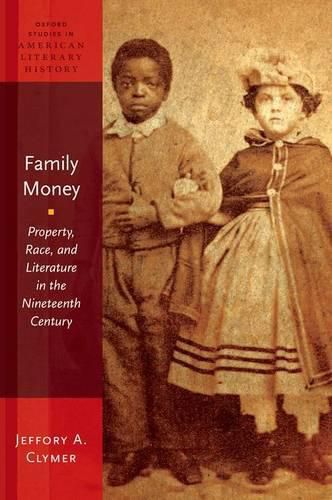Readings Newsletter
Become a Readings Member to make your shopping experience even easier.
Sign in or sign up for free!
You’re not far away from qualifying for FREE standard shipping within Australia
You’ve qualified for FREE standard shipping within Australia
The cart is loading…






Family Money explores the histories of formerly enslaved women who tried to claim inheritances left to them by deceased owners; the household traumas of mixed-race slaves; post-Emancipation calls for reparations; and the economic fallout from anti-miscegenation marriage laws. Authors ranging from Nathaniel Hawthorne, Frank Webb, and Harriet Beecher Stowe to Charles Chesnutt and Lydia Maria Child recognized that intimate interracial relationships took myriad forms, often simultaneously sexual, marital, coercive, familial, pleasurable, and painful. Their fiction confirms that the consequences of these relationships for nineteenth-century Americans meant thinking about more than the legal structure of racial identity. Who could count as family (and when); who could own property (and when); and how racial difference was imagined (and why) were emphatically bound together. Demonstrating that notions of race were entwined with economics well beyond the direct issue of slavery, Family Money reveals interracial sexuality to be a volatile mixture of emotion, economics, and law that had dramatic, long-term financial consequences.
$9.00 standard shipping within Australia
FREE standard shipping within Australia for orders over $100.00
Express & International shipping calculated at checkout
Family Money explores the histories of formerly enslaved women who tried to claim inheritances left to them by deceased owners; the household traumas of mixed-race slaves; post-Emancipation calls for reparations; and the economic fallout from anti-miscegenation marriage laws. Authors ranging from Nathaniel Hawthorne, Frank Webb, and Harriet Beecher Stowe to Charles Chesnutt and Lydia Maria Child recognized that intimate interracial relationships took myriad forms, often simultaneously sexual, marital, coercive, familial, pleasurable, and painful. Their fiction confirms that the consequences of these relationships for nineteenth-century Americans meant thinking about more than the legal structure of racial identity. Who could count as family (and when); who could own property (and when); and how racial difference was imagined (and why) were emphatically bound together. Demonstrating that notions of race were entwined with economics well beyond the direct issue of slavery, Family Money reveals interracial sexuality to be a volatile mixture of emotion, economics, and law that had dramatic, long-term financial consequences.